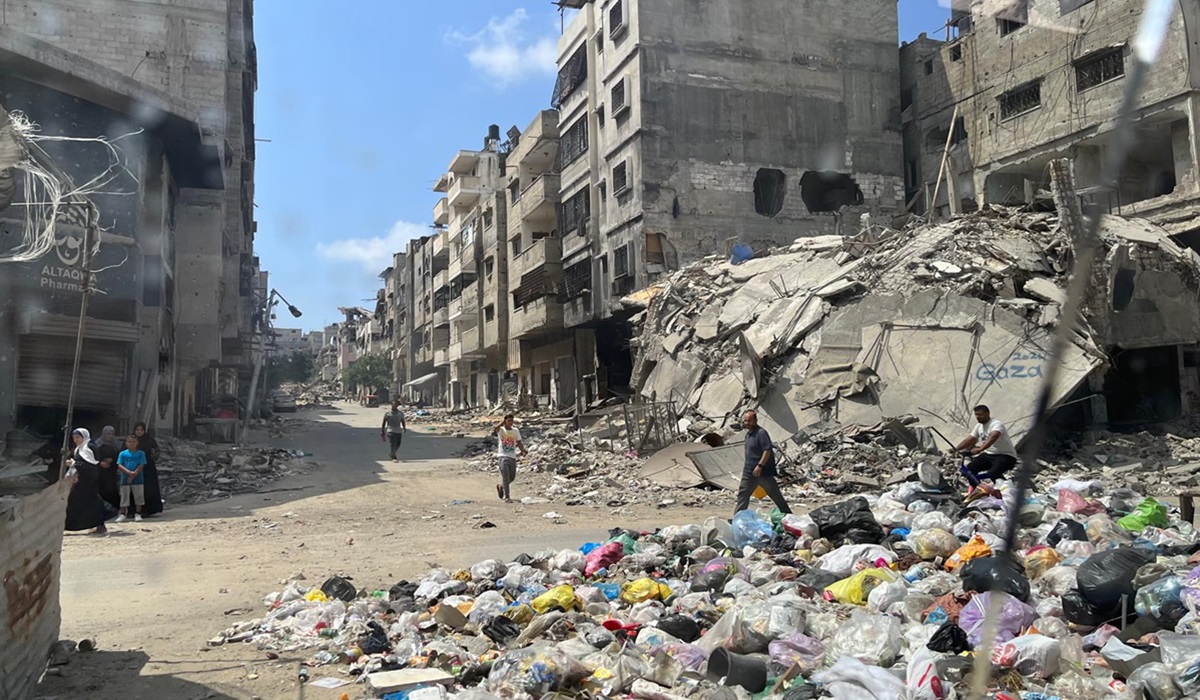Trapped in Ruins: Gaza’s Humanitarian Crisis Worsens Amid Relocation Orders
- Naomi Dela Cruz
- Middle East
- Trending
- August 6, 2024

Image Credit, NRC
Gaza, Palestine — The Norwegian Refugee Council (NRC) has issued an urgent update on the escalating humanitarian crisis in Gaza. Hassan Morajea, NRC’s regional access advisor, highlighted the severe challenges faced by the population in Deir al-Balah, where unpredictability and instability have exacerbated existing hardships.
Morajea reported, “People are living in a constant state of unpredictability, not knowing what is going to come next, be it more displacements, more relocations, or a regional escalation. All those worries are adding a level of emotional and psychological stress to the hardship already faced by people because of the lack of food and water, and the inability to provide shelter for their families.”
The operational challenges are immense, with aid workers balancing the necessity of their mission against the omnipresent threats. The concentration of displaced people and aid teams in Deir al-Balah raises concerns about the potential impact of further forced transfers.
“In Gaza, there is nowhere for people to go; fleeing to somewhere with shelter is not an option. The streets are uninhabitable, crowded with people using anything that will offer some semblance of a roof over their heads, even if that is in a damaged building scarred with holes, and destruction around them. It’s shocking to see people living in ruins, but that’s what’s happening here in Gaza, because there is no other option. There aren’t open fields to even set up a tent. There aren’t even tents for them to set up,” Morajea added.
Humanitarian aid is insufficient, with critical shortages of drinking water, food, and medicine. Aid delivery is further complicated by Israeli restrictions and a breakdown in local governance. Cash shortages hinder transactions with local vendors, forcing aid teams to resort to unconventional methods such as using donkey carts to transport supplies.
“There needs to be stronger collective action from the world to ensure that humanitarian aid enters Gaza unhindered, and that people are offered protection, wherever they are. People must be able to live their lives and be able provide for their families,” emphasized Morajea.
NRC’s Health, Safety, and Security team has noted a significant reduction in the designated “humanitarian zones” in Gaza, from 20% to 14.5%, due to recent relocation orders by Israeli authorities. These orders have displaced over 200,000 people from Khan Younis and Deir al-Balah between July 22 and July 28. The UN estimates that 86% of Gaza has been subjected to relocation orders.
Since the military operation in Rafah began in May, the volume of aid trucks entering Gaza has plummeted by 56%, severely limiting the availability of essential goods. NRC has been unable to transport aid from crossing points to its warehouses in Gaza for three months, leaving nearly 500 pallets of aid stranded at Kerem Shalom.
Despite these challenges, NRC has managed to provide safe drinking water to 43,000 displaced individuals daily, distribute tents, hygiene kits, and kitchen sets, and offer psychosocial support to 1,800 children.
Morajea concluded, “The hostilities must end. There needs to be a sustainable ceasefire. Flows of goods, both humanitarian and commercial, need to be allowed to come through to deflate the extremely high prices and support people in their recovery.”








